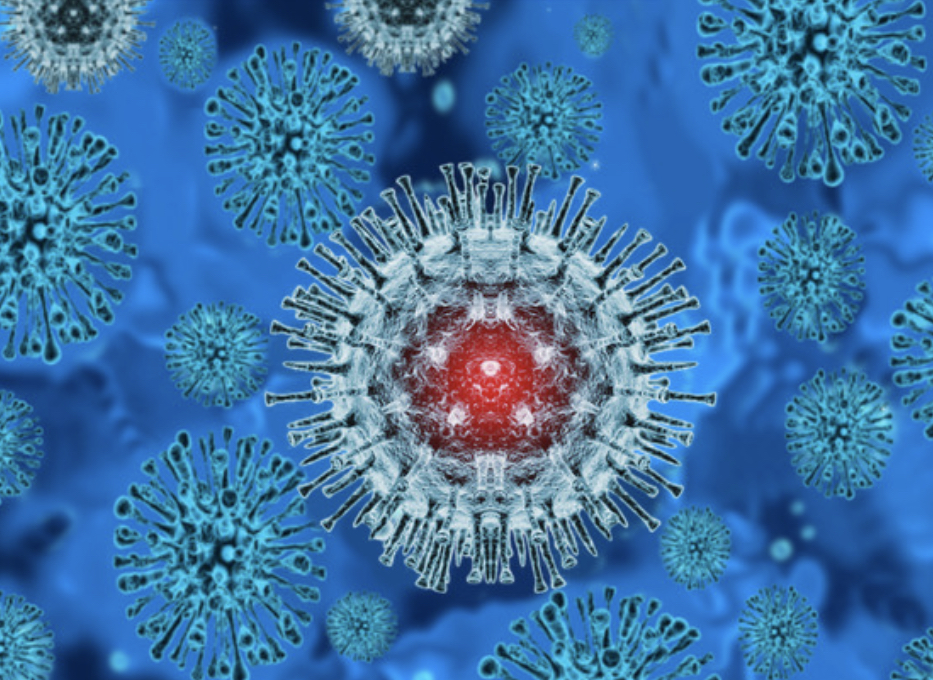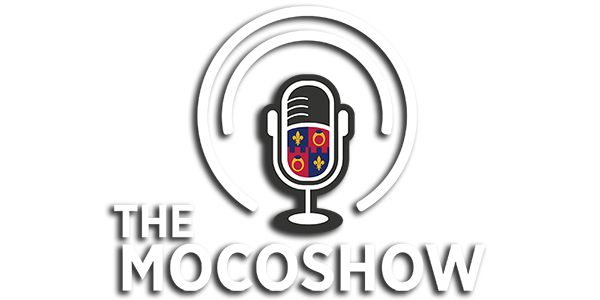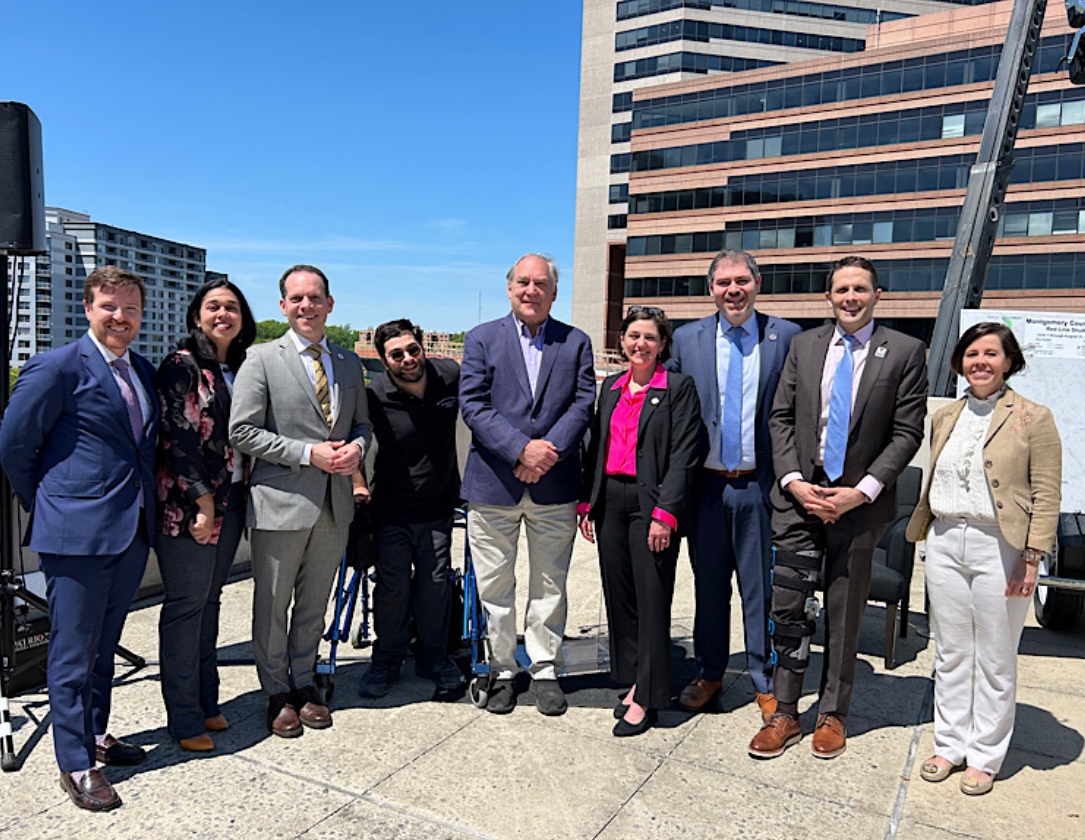
Today the World Health Organization (WHO) officially declared the spread of monkeypox to be a global health emergency, its highest alert designation, just days after Montgomery County’s Department of Health and Human Services announced that they had received a limited number of monkeypox vaccine doses that will only be offered to a limited number of eligible residents who are at highest risk of contracting the virus.
According to NBC News, the designation means the WHO “now views the outbreak as a significant enough threat to global health that a coordinated international response is needed to prevent the virus from spreading further and potentially escalating into a pandemic.” So far there have been more than 2,500 monkeypox cases reported across the United States.
According to the WHO, symptoms of monkeypox, which typically last 2-4 weeks, include fever, intense headache, lymphadenopathy (swelling of the lymph nodes), back pain, myalgia (muscle aches) and intense asthenia (lack of energy). Lymphadenopathy is a distinctive feature of monkeypox compared to other diseases that may initially appear similar (chickenpox, measles, smallpox), as well a blistery rash that typically affects the face (in 95% of cases), and palms of the hands and soles of the feet (in 75% of cases).
On Wednesday, officials from Montgomery County’s Department of Health and Human Services announced that they had received a limited number of monkeypox vaccine doses that will only be offered to a limited number of eligible residents who are at highest risk of contracting the virus. People considered at risk include:
- Known contacts who are identified by public health via case investigation, contact tracing and risk exposure assessments.
- Presumed contacts who may meet the following criteria:
- Know that a sexual partner in the past 14 days was diagnosed with monkeypox.
- Had multiple sexual partners in the past 14 days in a jurisdiction with known monkeypox.
- Vaccines used during the smallpox eradication programme also provided protection against monkeypox. Newer vaccines have been developed of which one has been approved for prevention of monkeypox
- Monkeypox is caused by monkeypox virus, a member of the Orthopoxvirus genus in the family Poxviridae.
- Monkeypox is usually a self-limited disease with the symptoms lasting from 2 to 4 weeks. Severe cases can occur. In recent times, the case fatality ratio has been around 3–6%.
- Monkeypox is transmitted to humans through close contact with an infected person or animal, or with material contaminated with the virus.
- Monkeypox virus is transmitted from one person to another by close contact with lesions, body fluids, respiratory droplets and contaminated materials such as bedding.
- Monkeypox is a viral zoonotic disease that occurs primarily in tropical rainforest areas of central and west Africa and is occasionally exported to other regions.
- An antiviral agent developed for the treatment of smallpox has also been licensed for the treatment of monkeypox.
- The clinical presentation of monkeypox resembles that of smallpox, a related orthopoxvirus infection which was declared eradicated worldwide in 1980. Monkeypox is less contagious than smallpox and causes less severe illness.
- Monkeypox typically presents clinically with fever, rash and swollen lymph nodes and may lead to a range of medical complications
Per Montgomery County:
For Immediate Release: Wednesday, July 20, 2022
Health officials from the County’s Department of Health and Human Services announced today that they have received a limited number of monkeypox vaccine doses. Currently, the supply of vaccine is very limited and the County, under the guidance of the Maryland Department of Health, will only offer vaccinations to a limited number of eligible residents who are at highest risk of contracting the virus.
Residents who are identified by public health officials as close contacts of current monkeypox cases will be offered vaccination. Public health staff from the County’s sexual health programs will be working with community-based non-profit organizations to identify residents who could be at risk and are contacting them directly to offer an opportunity to be vaccinated. As vaccine supply increases, additional residents who are at-risk will be identified and offered vaccination.
Currently, monkeypox vaccinations will be limited to:
- Known contacts who are identified by public health via case investigation, contact tracing and risk exposure assessments.
- Presumed contacts who may meet the following criteria:
- Know that a sexual partner in the past 14 days was diagnosed with monkeypox.
- Had multiple sexual partners in the past 14 days in a jurisdiction with known monkeypox.
The risk of monkeypox in the United States is believed to be low. Monkeypox does not spread easily between people, and the time between exposure and when symptoms start give public health officials time to track down contacts and break the chain of infection.
Anyone, regardless of gender identity or sexual orientation, can catch monkeypox. However, a number of cases in the current outbreak are among gay, bisexual, or other men who have sex with men.
People who do not have monkeypox symptoms cannot spread the virus to others. Even though it is not considered a sexually transmitted infection, monkeypox can spread during intimate physical contact between people. Anyone can get monkeypox if they have close contact with someone who has the virus.
Monkeypox is a rare disease caused by infection with the monkeypox virus. Person to person transmission occurs through:
- Direct contact with the infectious rash, scabs, or bodily fluids.
- Respiratory secretions during prolonged, face-to-face contact or during intimate physical contact, such as kissing, cuddling, or sex.
- Touching items such as clothing or linens that previously touched the rash or body fluids of an infected person.
- Pregnant people can spread the virus to their fetus through the placenta.
Monkeypox can be spread from the time symptoms start until the rash has fully healed and a fresh layer of skin has formed. The illness typically lasts 2-4 weeks. People who do not have monkeypox symptoms cannot spread the virus to others.
Symptoms can often include flu-like symptoms such as fever, headache, muscle aches, and swollen lymph nodes, followed by a rash and lesions on the skin. Most cases of monkeypox do not require hospitalization, but monkeypox is highly contagious in individuals with symptoms.
Residents who believe that they have been exposed to monkeypox should contact their health care provider or a community provider such as an urgent care center. Those without a health care provider can also call the Disease Control Program at 240-777-1755. People who believe they are in a high-risk group and meet the above criteria for vaccination can contact their health care provider or the Sexually Transmitted Infection (STI) clinic at 240-777-1751.
People who believe they have been exposed to monkeypox should avoid close contact with others until a health care provider examines them and provides testing for the monkeypox virus. They should avoid close contact with pets or other animals until they are examined and tested. If a person tests positive, the Centers for Disease Control and Prevention (CDC) recommends that they stay isolated until the rash has healed, all scabs have fallen off and a fresh layer of intact skin has formed.
Visit the County’s Department of Health and Human Services website for additional information about monkeypox.
Recent Stories
According to the Montgomery County State’s Attorney’s Office, “in the Circuit Court for Montgomery County, MD, before the Honorable Margaret Schweitzer, a jury found defendant, Geofrey Gaitan, 31, of Silver…
FEST OF SPRING Caribbean Wine Food & Music Festival
Get ready to experience the vibrant colors, tantalizing flavors, and infectious rhythms of the Caribbean at the FEST OF SPRING Caribbean Wine Food & Music Festival! Hosted by RHU LLC, this exciting festival is set to take place on May 18, 2024, at the picturesque 16700 Barnesville Rd in Boyds, MD.
Step into a world where the Caribbean spirit comes alive! From 12:00 PM onwards, immerse yourself in a sensory journey that celebrates the unique culture, cuisine, and music of the Caribbean. Whether you're an African American, a Reggae or Soca music enthusiast, a wine lover, or part of the vibrant Caribbean diaspora, this festival promises to delight and captivate you in every way.
Let the enticing aromas of mouthwatering Caribbean dishes tantalize your taste buds. Feast on traditional delicacies prepared by expert chefs, showcasing the rich and diverse culinary heritage of the Caribbean. Indulge in flavorful jerk chicken, succulent seafood, and delectable plantain dishes that will transport you straight to the islands.
Accompanying the culinary extravaganza is a carefully curated selection of premium wines, ensuring the perfect pairing for your palate. Sip on fine wines from renowned vineyards, each sip a reflection of the Caribbean's vibrant spirit. Discover new flavors, expand your wine knowledge, and savor unforgettable moments with every glass.
As the sun sets, get ready to groove to the infectious rhythms of Caribbean music. Feel the pulsating beats of reggae, soca, dancehall, and calypso, moving your body to the lively melodies. Live performances by talented musicians and performers will keep the energy high, ensuring a night of unforgettable entertainment.
Don't miss this opportunity to embrace the Caribbean spirit and celebrate the arrival of spring in style! Tickets are available on AllEvents, so secure your spot today. Join us at the FEST OF SPRING Caribbean Wine Food & Music Festival, where cultures collide and unforgettable memories are made.
LIVE PERFORMANCES By: CULTURE Feat. Kenyatta Hill, EXCO LEVI, IMAGE BAND, RAS LIDJ REGG'GO with Special Guest SUGAR BEAR FROM E.U. & MORE! & MORE!
MUSIC By: DJ ABLAZE, DJ SMALLY & NAJ SUPREME
2 NIGHT Camping packages available: RV/CAMPER $200 | TENTS $150 Starting on Friday May 17 @ 5pm | 30 RV SPACES | 30+ TENT SPACES
KIDS 12 & UNDER FREE!!!





